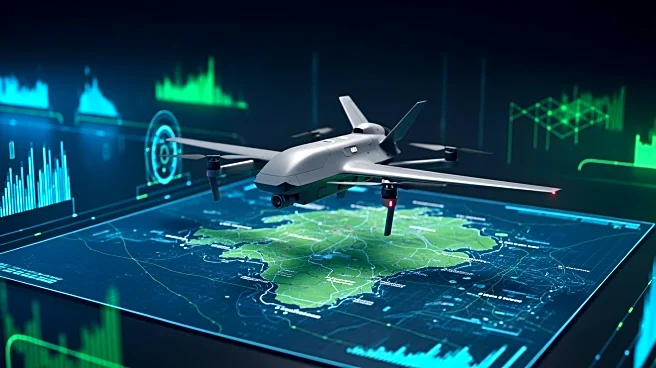What's Happening?
The Chinese military has undergone significant transformation under Xi Jinping, with increased investment in national defense and a focus on indigenous production of weapons platforms. Historically reliant on Russian military systems, China is now developing
its own military industrial complex. Despite these advancements, the Chinese military lacks experience in 21st-century conflict scenarios, raising questions about its chain of command and decision-making flexibility. Concurrently, Taiwan faces intensified military threats from China, including daily incursions into its air defense identification zone and missile tests. Taiwan's President William Lai has announced plans to increase defense spending to 5% of GDP and build an anti-missile shield, known as the 'T-dome,' over the island. Despite these threats, the mood in Taiwan remains calm, with citizens continuing their daily lives without significant disruption.
Why It's Important?
The transformation of China's military capabilities poses a significant threat to Taiwan, a key player in the global economy, particularly in semiconductor production. The potential for conflict in the Taiwan Strait could have severe implications for global economic stability, given Taiwan's central role in technology supply chains. The U.S. military remains a critical variable in any Taiwan Strait scenario, with its involvement potentially deterring Chinese aggression. However, the lack of experience in modern warfare within the Chinese military could impact its effectiveness in a potential conflict. Taiwan's strategic response, including increased defense spending and the development of deterrence capabilities, aims to impose significant costs on China, deterring military action. The geopolitical tension between China and Taiwan underscores the broader implications for regional stability and international relations.
What's Next?
Taiwan's plans to increase defense spending and develop an anti-missile shield are expected to continue, with potential opposition from political parties within Taiwan's parliament. The U.S. may play a crucial role in supporting Taiwan's defense efforts, with ongoing discussions about military sales and strategic partnerships. China's military advancements, coupled with its ideological stance under Xi Jinping, suggest continued pressure on Taiwan, potentially leading to increased international diplomatic efforts to prevent escalation. The situation remains fluid, with potential for further developments in U.S.-China relations, particularly concerning Taiwan's security and autonomy.
Beyond the Headlines
The ideological motivations of the Chinese Communist Party under Xi Jinping could drive decisions that prioritize national rejuvenation and territorial claims over pragmatic considerations. Taiwan's resilience and strategic importance in the global economy may influence international responses, with potential for increased diplomatic and economic support from other nations. The evolving military dynamics in the region highlight the complex interplay between national defense strategies, international alliances, and economic dependencies.















